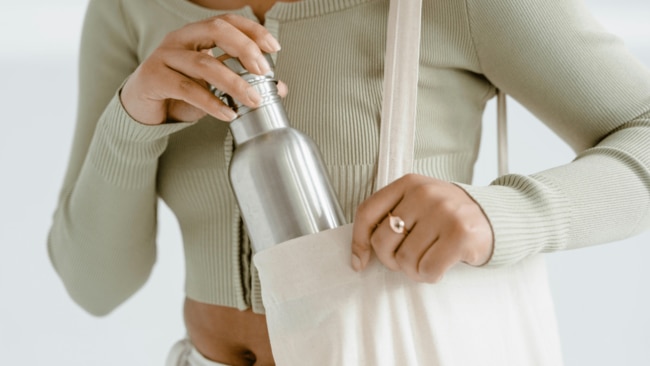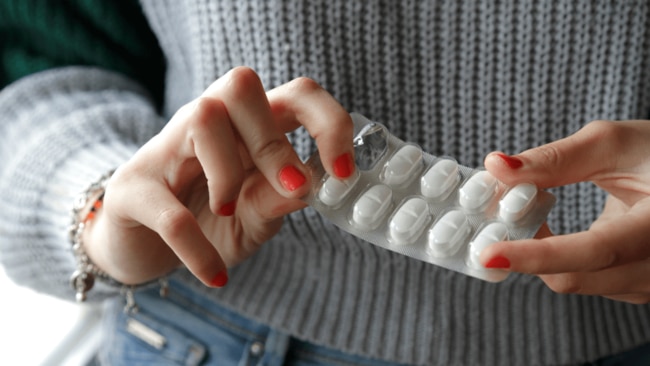Prevention vs cure – how to beat or treat a cold
And the home remedies you should ignore

Lifestyle
Don't miss out on the headlines from Lifestyle. Followed categories will be added to My News.
Struggling to soldier on through the winter season of stuffy noses and relentless sore throats? Here are the common cold remedies you need to speed up your recovery, and the ones you're better off ignoring.
There's a reason why the aptly named common cold rears its little head more often than we'd like; more than 200 different viruses can cause it, with the rhinovirus being the most likely.
Regardless of the virus that causes it, a common cold cannot be cured overnight by any means, with symptoms likely to stick around for up to 10 days.
But just because our colds are common doesn't mean we should put up with a vicious round of symptoms every time we get one.

Can you cure cold symptoms?
Regardless of what some 'experts' flogging supplements or old wives' tales might have you believe, there is no cure for a common cold.
But while you may not be able to completely rid your body of sniffles, coughing and exhaustion overnight, there are plenty of effective ways to alleviate some of the most bothersome symptoms.
Here are the scientifically proven and expert-backed ways to ease cold symptoms and speed up your recovery.

Do over-the-counter cold medicines work?
Thanks to the incredible medical advancements of our predecessors, we often take for granted the convenience of reaching for a pill or potion to alleviate any kind of ailment. But since there is no cure for the common cold, is reaching for cold medicines and cough medicines to treat our symptoms actually effective?
While cold medicines and cough medicines won't prevent colds or shorten their lifespan, decongestants, antihistamines and pain relievers can greatly reduce irritation and alleviate common symptoms such as nasal congestion, sore throats and trouble breathing.
It's important to note that many of these medications can cause side effects. If you do choose to turn to over-the-counter medications, always read the label and follow the instructions.

Prevention vs cure – how to beat or treat a cold
Don't underestimate the power of rest
In order to help your body fight off the symptoms of a nasty cold, your time is best spent focusing on getting plenty of rest.
In other words, skip anything that is likely to put a strain on your body, mentally and physically (yes, that means run club and your Pilates classes), and pursue at least eight to ten hours of sleep at night.
Drink plenty of fluids
When you're feeling under the weather, it's natural to lose your appetite to an extent. But regardless of how much food you manage to stomach in between fits of sneezing, it's important to maintain regular hydration. Always have a water bottle close, or supplement with electrolytes for an added boost.
If a scratchy throat and stuffy nose are putting you off swallowing, turn to warm liquids such as soup, tea with honey and warm apple juice to increase mucus flow and soothe the throat.

Invest in a humidifier
It's common knowledge that cold air holds less moisture than warm air – just ask your sweat-soaked summer running clothes. In winter, however, the increased dryness in the cold air can leave nostrils more prone to viruses, and even worsen existing cold symptoms.
Not only can humidifiers help to ward off any unwanted viruses in the first place, but they can also help to relieve congestion and calm sore throats by loosening mucus in the airways. We call that a win-win.
Try a saltwater gargle
It might be old-school, but washing out your throat with salt water can reduce inflammation and pain. Simply mix one teaspoon of salt into a cup of warm water and gargle together in your throat. Spit, don't swallow.
Not a fan of salt? Throat lozenges can also ease pain and inflammation, helping you fix your sore throat and lessen symptoms altogether.

Practice basic hygiene
While it's almost impossible to get through a winter without succumbing to at least one nasty cold, it's never nice to be the one responsible for spreading your sickness through the office or household.
For the sake of your loved ones, colleagues and the fellow supermarket shoppers, ensure you're washing your hands regularly, wearing a mask in public, and keeping your distance from others until your symptoms have subsided.
The home remedies and treatments that won't help cure a common cold
Antibiotics
As wonderful – and lifesaving – as antibiotics are, they are not designed to treat the root of a common cold. Antibiotics work by targeting and attacking unwanted bacteria in the body, while the common cold is caused by viruses.
Prescribed antibiotics will not help you recover from symptoms caused by a cold, and in most cases, taking them incorrectly (when they are not needed, or without following a full course) can have terrible ramifications on your gut health and create life-threatening resistance to antibiotics.

Your go-to feel-good vices
When you're feeling under the weather, it's natural to want to turn to your favourite tried and tested vices for a little pick-me-up. Unfortunately, most of the popular ones are bad your you at the best of times.
For example, smoking and close contact with secondhand smoke can further irritate your nose, throat and lungs, causing upper respiratory distress and other health problems. Alcohol, caffeine, sugary drinks and salty foods should also be avoided with a cold, as they can be dehydrating and impede other treatments.

Vitamin C and Zinc
Vitamin C and Zinc have long been touted as cures for cold and flu symptoms, but little scientific evidence supports this claim. Most people turn to vitamin C at the first sign of a flu, through supplements of dietary sources, to ward off symptoms and assist their immune system in recovery, but when it comes to the common cold, vitamin C is largely ineffective.
While some studies suggest it can help reduce the length of cold symptoms, this is only possible if taken preventatively, not after the onset of your sniffles and cough.
When to seek medical care
Remember, while there is no cure for the common cold, there are plenty of simple (but effective) ways to manage the symptoms and support your body's natural recovery.
If your cold symptoms have not subsided in 10 days, seek medical care immediately or consult with your healthcare provider.
More Coverage
Originally published as Prevention vs cure – how to beat or treat a cold





